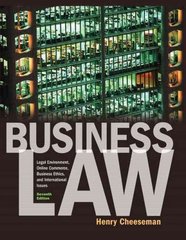Question
1. A successful Canadian businesswoman wants to build a vacation house in southern France. The construction of the house costs 2 million and takes a
1. A successful Canadian businesswoman wants to build a vacation house in southern France. The construction of the house costs 2 million and takes a year. She hires a construction company in Europe to carry out the project and pays 1 million upfront to start the project. The remaining 1 million is due a year from now when the construction is complete. She has the money as cash in Canadian dollars and needs to decide whether to turn all the money into euros now or exchange only the amount needed for the upfront payment and convert the remaining money a year from now. The current spot exchange rate is 0.66/C$ and the one-year risk-free bond interest rates are 2% in Canada and 0% in Eurozone. The businesswoman does not want to take any risk, so she only considers buying euros in the spot market or in the forward market now, as well as utilize investment options that are as close to risk-free as possible. Suppose she has the option to sign a forward contract that provides 1 million at 0.65/C$ a year from now. Assume that there is no transaction cost involved in buying bonds or forward contracts. What is her best strategy for paying the final part of her construction costs?
a)She should pay C$1,515,151.52 to buy euros now and buy one-year euro bonds with them.
b)She should pay C$1,508,295.63 to buy one-year Canadian bonds and sign a forward contract to buy 1 million next year.
c)She should sign a forward contract to buy 1 million next year and keep C$1,538,461.54 in a Canadian zero-percent interest rate bank account to pay for the euros one year from now.
d)She should pay C$1,485,442.66 to buy euros now and buy one-year euro bonds with them.
2. Suppose the one-year risk-free interest rate on the British pound is higher than its counterpart on the euro: i > i. In this situation, if the interest parity condition holds,
a)the pound would be expected to appreciate against the euro between now and a year from now.
b)the pound would be expected to depreciate against the euro between now and a year from now.
c)the pound-euro exchange rate would be expected to remain constant.
d)the pound may be expected to appreciate or depreciate against the euro, depending on other factors.
3. An American family wants to buy a new SUV and they have decided it has to be either Lexus GX made in Japan or Mercedes-Benz GLS made in Germany. The Lexus is currently priced at 5.9 million and the Mercedes-Benz at 50,000. Assume that the dollar prices of these cars are calculated at the market exchange rate. At these prices, the family is indifferent between the two cars. Given the COVID-19 situation, they decide to postpone the purchase by a year. In the next 12 months, they expect the dollar to rise against the yen 1 percent and against the euro by 3 percent. They further expect that the prices of the two cars in their respective currencies will remain the same. Which car is expected to be a better deal a year from now?
a)Lexus GX.
b)Mercedes-Benz GLS.
c)Lexus GX if the yen depreciates against the euro.
d)Lexus GX if the yen does not depreciate against the euro.
e)The two cars will remain equally attractive if the yen does not depreciate against the euro.
Step by Step Solution
There are 3 Steps involved in it
Step: 1

Get Instant Access to Expert-Tailored Solutions
See step-by-step solutions with expert insights and AI powered tools for academic success
Step: 2

Step: 3

Ace Your Homework with AI
Get the answers you need in no time with our AI-driven, step-by-step assistance
Get Started


